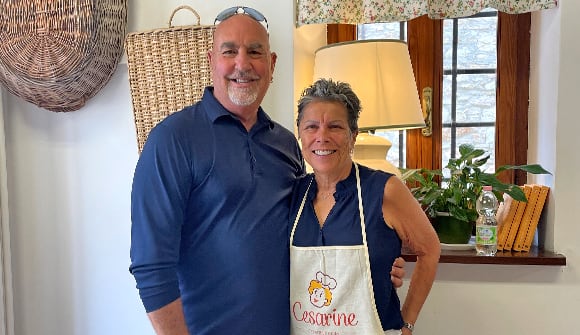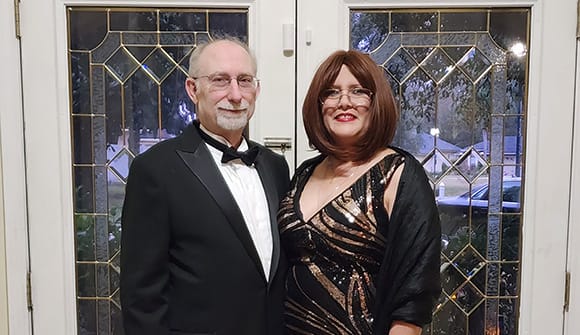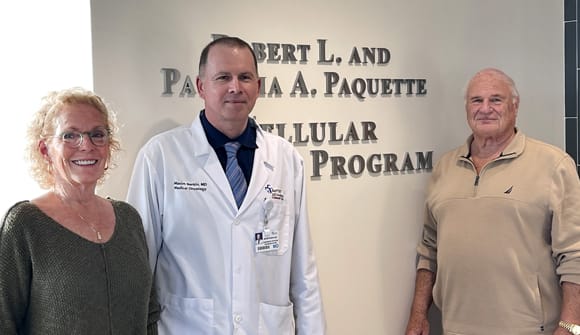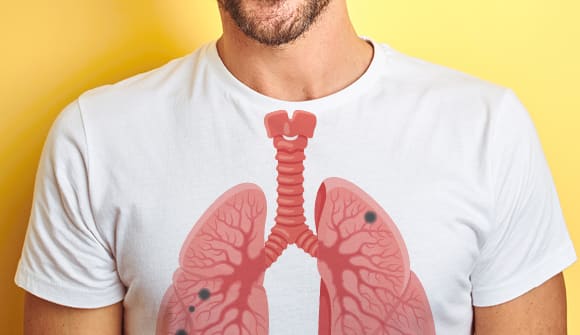The ‘Angelina Jolie’ effect
How celebrity health scares lead to better awareness and action.
Article Date:

When a celebrity who we have put on a pedestal has a health scare, we tend to pay attention and look at our own lives.
Breast cancer, and cancer overall, is no exception. Like when First Lady Nancy Reagan was diagnosed with breast cancer in 1987. Surveys showed more people were influenced to contact a health professional and get their first mammogram based on Mrs. Reagan’s experience.
The late former Apple CEO Steve Jobs’ diagnosis of pancreatic neuroendocrine cancer raised awareness about that rare cancer and pancreatic cancer in general.
And when Angelina Jolie announced being she was a BRCA1 carrier -- which put her at a higher risk for breast and ovarian cancer -- and then had a double mastectomy in 2013, there was what media dubbed “The Angelina Jolie Effect,” leading to a spike in genetic testing.
“We definitely see an uptick in breast cancer screenings and diagnosis after celebrities reveal their breast cancer journeys,” said breast surgeon Beth-Ann Lesnikoski, MD, director of the Breast Program at Baptist MD Anderson Cancer Center. “Some patients feel as if they know a celebrity and identify with parts of the celebrity’s life, and the media doesn’t report too much on regular people getting breast cancer and what those individuals do.”
For the most part, Dr. Lesnikoski said it is helpful when celebrities speak out, but it can be a concern if a patient only relies on TV sound bytes from the media.
“It’s important for patients to see a professional, get fully educated about their disease, and make treatment choices that are tailored to them as an individual and a whole person,” she added.
Dr. Lesnikoski encourages these steps be taken if someone is diagnosed with cancer:
- Get educated. See a specialist in your specific cancer type and get a second opinion if you feel that you need more information, or if you don’t feel like you will have a good connection with the first doctor you consult.
- Ask questions. “There are no stupid questions. Your caregiver should treat you with respect and listen to your concerns and questions,” she said.
- Assemble a team. Breast cancer is almost never an emergency. You have time to get educated and to assemble a team, said Dr. Lesnikoski. You will typically need a surgeon, a medical oncologist and a radiation oncologist. “Make sure you understand what each one does and what his or her final recommendations are,” she said. "You may need a plastic surgeon as well, especially if you want reconstruction after total mastectomy, or if a cosmetic repair is needed for women with larger tumors who want to conserve their breast.”
When it comes to a double mastectomy, Dr. Lesnikoski said it generally only has a survival benefit for patients like Jolie who have high-risk breast cancer genes that tend to cause aggressive breast cancers at a younger age than is typical for non-genetic breast cancer. Fewer than 5 percent of patients diagnosed with breast cancer will carry a high-risk mutation, she said. Double mastectomy is not recommended for other groups, she added.
Various new treatments are providing hope for patients with triple-negative breast cancer, which typically doesn’t respond to traditional hormone therapy, or HER2 -positive breast cancer, which has too much of the protein HER2 and is aggressive and fast growing.
Baptist MD Anderson Cancer Center offers a number of clinical trials for various cancers, including breast cancer, especially triple-negative breast cancer.
“We have options for immunotherapy, (which uses the body’s own immune system to help fight cancer). We also are testing innovative technologies to reduce the chances of finding cancer cells at the edge of the surgical specimen after a lumpectomy,” Dr. Lesnikoski said. “For patients with triple-negative or HER2-positive breast cancer, we offer a clinical trial that eliminates breast surgery for those who have no evidence of the disease left in the breast after up-front chemotherapy.”
Baptist MD Anderson also offers genetic testing and genetic counseling services to help assess patients and their family members for inherited cancer syndromes or cancer predisposition.
When to seek genetic testing
- You or someone else in your family has been diagnosed with cancer under the age of 50.
- You or someone else in your family has developed the same type of cancer more than once, a rare cancer or multiple types of cancer.
- Someone in your family has been diagnosed with bilateral cancers (in both paired organs such as both breasts or kidneys).
- You have a family member who has been identified as having a hereditary cancer syndrome, which can be the case for breast, ovarian, prostate, pancreatic, melanoma, colorectal, uterine and other cancers.
If you are concerned about your risk for breast cancer, talk to your primary care doctor or OB/GYN.



